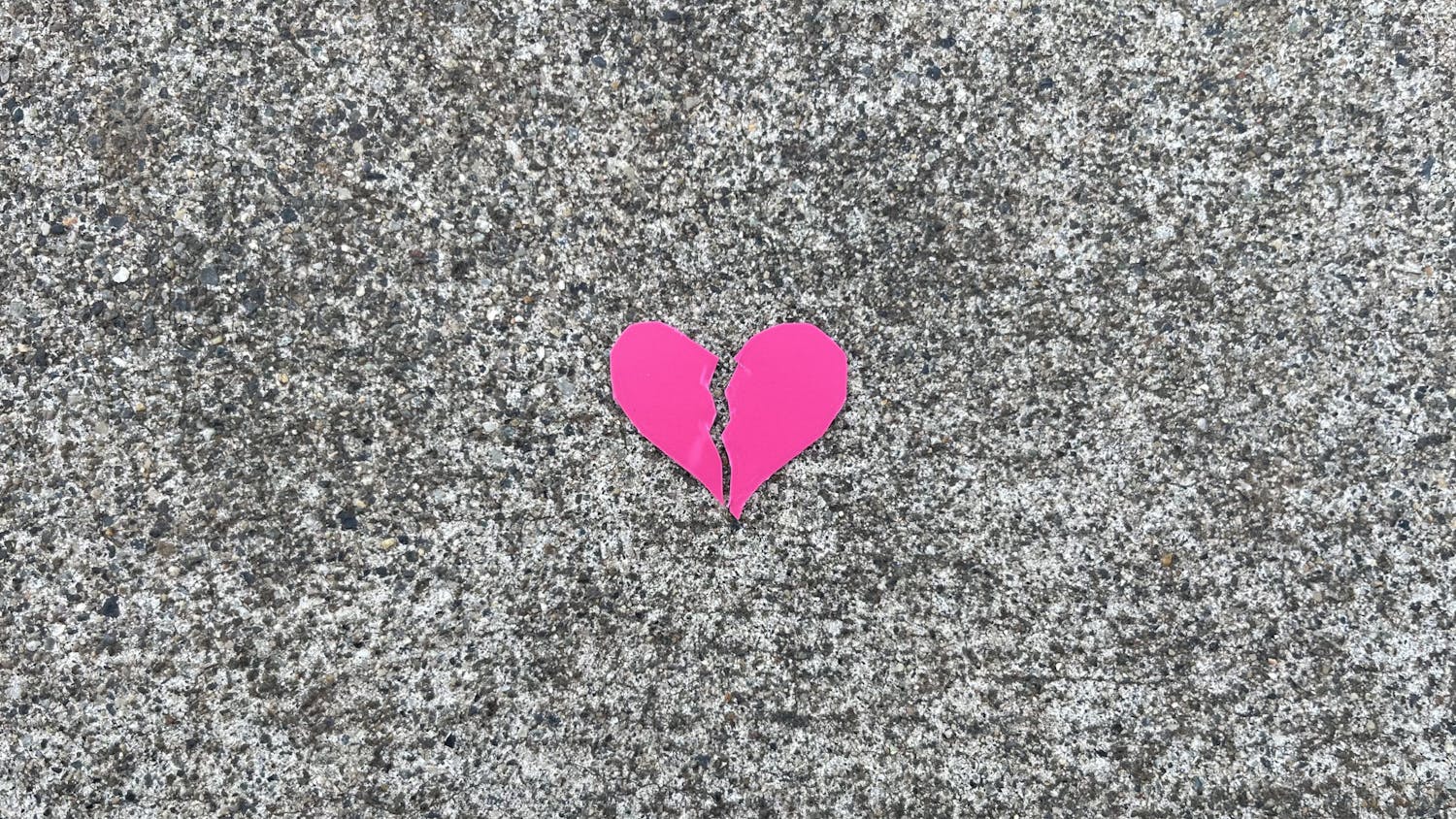We had our reporters ask how you think The Western Front can improve as part of our effort to better serve you. Consider taking our survey to have your voice heard.
A letter from the The Western Front's editor-in-chief for winter quarter, Asia Fields.
The Western Front has messed up in the past and we want to own up to it.
As the current editor-in-chief and a former managing editor, news editor and reporter, I’m pretty invested in the paper. I think that at its best, it serves Western and the wider community by providing the news with context, holding those with power accountable, and including underreported issues and underrepresented voices. I’m proud of the work that’s been done by the Front.
But I’m also not blind to its flaws. I know there’s a lot of distrust when it comes to the Front, often stemming from times in the past when the paper has made mistakes — sometimes colossal mistakes that exclude, hurt and at the most extreme, put students’ safety on the line.
In this letter, I want to recognize the Front’s mistakes and outline how we’re working to make sure they don’t happen again. But first, I thought I would provide some context about how we operate.
What many of you likely don’t know about the Front is that the staff changes a lot. The editor-in-chief and most of the editors are different every quarter, and we often aren’t great at passing on institutional knowledge between quarters.
In addition, the reporters are students taking the Front as a class, and a majority are usually new to reporting. We do everything we can to train reporters and have discussions about being respectful and responsible, but ultimately, we don't get to see how they interact with sources.
None of this excuses any wrongs committed by student journalists, but I do hope they help explain how they might have happened.
We sent some of our reporters out to ask you what you think the Front can do to improve, and here’s what you said.
Outing transgender students
There have been a few times in the past year when people have been reluctant to talk to the Front because they heard it outed transgender students years ago. From what I can tell based on available records, the article being discussed was published in April 2012 and was about the AS Board passing a resolution to stand for women and transgender students’ right to healthcare. The article quotes transgender students who appear to have testified at the meeting and includes personal information they shared.In a letter to the editor published in May 2012, a journalism student who identified as a leader in Western’s transgender community said they were concerned with the article, as the students were not asked for permission before being included in the story. Also, the wrong pronouns were used for one of the students.
As the student said, while the AS Board meetings are public, the Front should have asked before including personal information or identifying individuals as transgender. Just because some information is available, doesn’t mean it’s ethical to print it.
Some transgender students may feel comfortable speaking up in an AS Board meeting and being out on campus, but not to their family or friends back home. This mistake is also one that could significantly threaten students’ safety, as transgender people face high levels of harassment and violence. More than one in four transgender people have faced a bias-driven assault, according to the National Center for Transgender Equality.
“I hope the Front learns from its mistakes in this story and begins to apply a high level of scrutiny to covering topics like this with such sensitive material,” the reader wrote.
I checked the other papers published that quarter and was not able to find a response from the editors or even a correction for the incorrect pronoun. It’s now years later and I don’t know the full story, but I would like to recognize what appears to have been a grave error and assure readers that we are striving to do better.
Other mistakes
The Western Front has made a wide range of mistakes over the years, including the quarters when I've been an editor (all errors in the news section spring 2017 and in the overall paper summer 2017 and this quarter are at least partially my fault). While most of these were not intentional, it’s my hope that my staff will be transparent about any mistakes we make as an act of accountability. In order to own up to mistakes made by the Front, here is a brief list: In winter quarter last year, the paper inaccurately covered a City Council meeting and said a sanctuary city ordinance was declared when it was not. While a correction was issued, the article still did not provide context about what was actually passed (which advocates said did nothing to protect undocumented people) or reactions after. When I was a news editor spring quarter, in one of our first stories, we incorrectly made it seem like a young man was recently detained after a traffic stop , when the incident actually happened years prior. While this was corrected, it was a significant error. An infographic in a paper fall quarter had a completely inaccurate description of the Deferred Action for Childhood Arrivals program that said DACA brought immigrants to the U.S., but no correction was issued. And a story on sexual assault did not include the voices of survivors, give context for numbers provided or adequately discuss underreporting. This quarter, while working on multiple stories about a lack of inclusion on campus and looking at how professors of color reported having to work more than their peers (such as by serving on committees and doing work around diversity), we found that our reporters had been unintentionally replicating this problem by going to the same professors of color over and over again. Also this quarter, after publishing a story about students tripping on bricks with a light tone, a student made us realize that we hadn’t even thought to include the voice of students with mobility impairments, for whom the bricks on campus may be more than just a small inconvenience. We also saw that we should increase our coverage of campus accessibility. This is by no means an exhaustive list. I’ve heard tales of past editors running racist cartoons, ignoring issues that affected students of color and not being responsive to audience feedback.If you have your own stories you’d like to share, I encourage you to send them to me over email or to post them in the comments or social media posts for this piece. I will do my best to respond to all of you who do, to let you know I’ve heard you and that our staff is working to prevent these mistakes from happening again.
The highest value in journalism is accuracy and I want you to be able to open the paper knowing everything has been fact-checked. While mistakes will be made, I want to assure you our commitment to truth is sound and that we are also striving for ethical, responsible coverage. If you ever see a mistake, please let us know and we will do what we can to quickly and transparently correct it.Your feedback
Last quarter, my managing editor put out a survey on the WWU Only page. One question asked respondents if there is anything they’d like to see the Front do differently or improve on. Here are a few responses (not censored or edited):
“Not be transphobic? Ask for pronouns? Not invade queer spaces uninvited? Not be culturally appropriative?”
“Respect students' right to privacy and maybe I'll consider reading it.”
“write less fucked up shit. seriously. do better. y'all need to understand consent. the WF has harmed people on this campus & threatened our lives on multiple occasions, particularly through irresponsible and exploitative coverage. if the AS review can turn things around, so can you. hold yourselves accountable for the trash you've published & bring in folks who can and will do the tough work. no more excuses.”
“representation of & respect for marginalized identities”
In order to continue to learn how we can better serve you, we put together another survey. It shouldn't take more than 10 minutes and your feedback will help us identify how we can still improve and what you want to see covered.
What we’re doing to be better
This quarter, we’ve been engaging in more dialogue as a staff and in the classroom about how to take on important stories and sensitive topics respectfully. We’ve discussed past mistakes and are making an active effort to constantly evaluate our own performance.We require reporters to ask sources for pronouns. We’ve reached out to offices working with marginalized students and discussed how to ensure respectful coverage. We’ve made sure to ask before attending events that might be sensitive, and have been careful to understand what sources are comfortable having included in our stories. We recognize that journalistic rigor is not an excuse for invading safe spaces, and that the way we approach reporting on powerful politicians is not the way we should approach all stories.
a presentation I created on how to responsibly report on sexual assault and trauma, GLAAD's guide to reporting on LGBTQ people and issuesWe’ve talked about rethinking traditional methods of reporting in order to stop placing the burden of education on marginalized people on our campus. We’re trying to engage more with our audience when working on stories to give people the opportunity to be a part of stories, rather than targeting them. We’ve also discussed bringing in new voices, rather than asking the same people to speak to us over and over again.
While we maintain editorial control of our stories, we understand that sources know their own story best and should have a role in whether and how we tell it. For sensitive stories, I have told my editors that sources are in control of their story and can withdraw at any point, no questions asked. Your story is your own, and we are not entitled to them. I know sharing your stories with us is a significant act of trust, and to us that trust is sacred.
We need you
There are a lot of issues on campus that don’t get nearly the quantity or quality of coverage that they should. Issues like harassment, discrimination, sexual assault, mental health, awful landlords, college debt — these are all big stories that need human sources to have real impact. We want to dive in, collect data, make phone calls to people in power, find records, do research, give context and show the human impact of big issues. We know these topics are important to you and we can’t report on them effectively without you.
I know that asking you to share your stories with us and to trust that we will treat them with care is a lot to ask.
But I’m hoping you will see that we mean it when we say we consider your trust sacred. You’re the reason we do what we do, and I hope we can work together for the rest of the quarter on stories that will really have an impact.
If you would like to discuss what sharing your story might look like, or if you have any feedback or questions, please get in touch. You can contact westernfrontonline@gmail.com or my personal email at asiafields.westernfront@gmail.com . And you’re always welcome to leave us comments, message us on social media or see if we’re in the newsroom (we basically live here).




